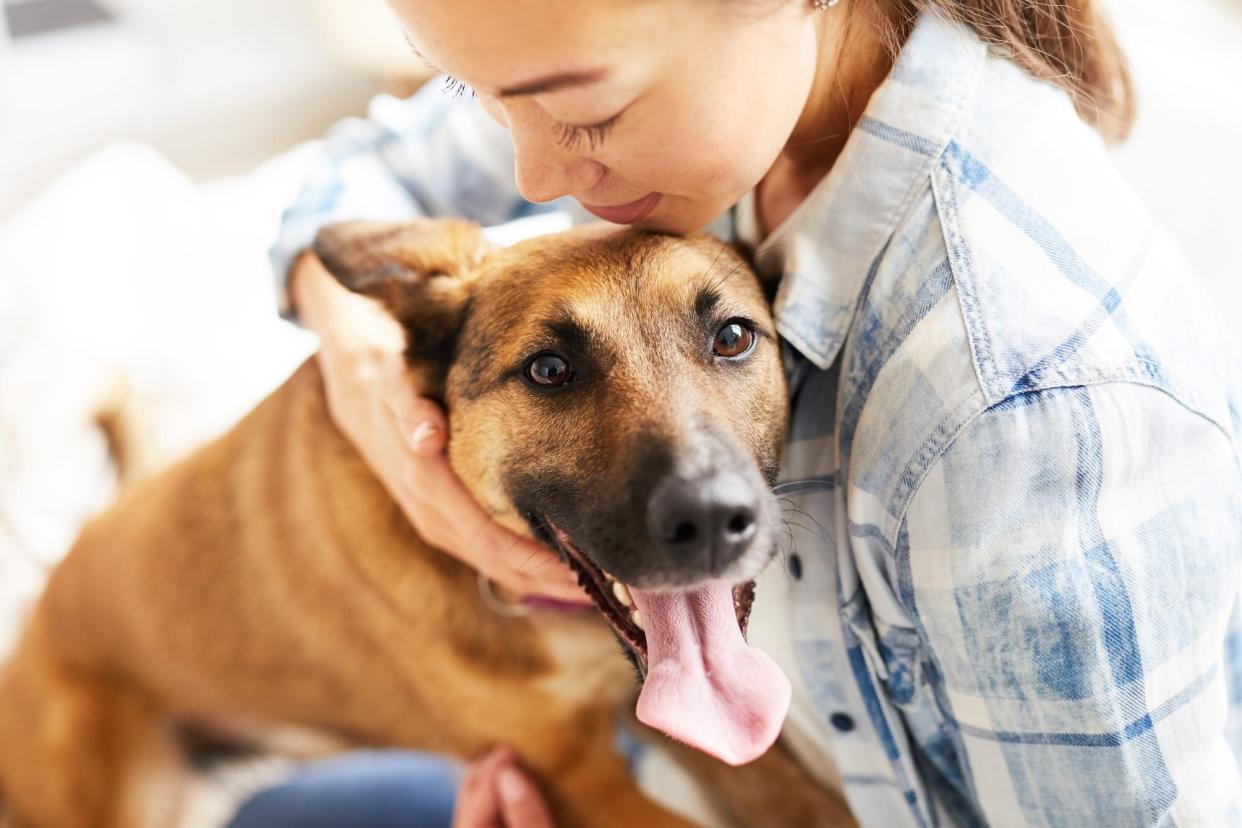Your Dog Knows When You're Stressed—She Can Smell It, New Research Shows

SeventyFour / Getty Images
If you have a dog, you can likely tell when your four-legged companion is stressed—they often pant, whine, and look wide-eyed in situations they find anxiety inducing. But did you know that your pet is equally as intuitive when it comes to your stressors? According to a new study published in the journal PLoS ONE, dogs can smell stress on human sweat and breath.
"The research highlights that dogs do not need visual or audio cues to pick up on human stress," says Clara Wilson, a PhD student in the School of Psychology at Queen's University in Belfast in a press release. "This is the first study of its kind and it provides evidence that dogs can smell stress from breath and sweat alone, which could be useful when training service dogs and therapy dogs.
To obtain their findings, the researchers collected samples of sweat and breath from 36 participants before and after they did a hard math problem. Each subject reported their stress levels before and after the task, and researchers used the results where the person's blood pressure and heart rate increased.
Related: Dogs Can Cry Tears of Happiness, New Research Shows
Four dogs, who were taught how to search a scent line-up and alert researchers to the correct sample, were then introduced to the stressed and relaxed samples from the participants. In every test session, each dog was given one person's relaxed and stressed results—and all four pets correctly chose which one was the stressed sample.
"The findings show that we, as humans, produce different smells through our sweat and breath when we are stressed, and dogs can tell this apart from our smell when relaxed—even if it is someone they do not know," says Wilson.
She also adds that the team's findings shed more light on the human-dog relationship and provide insight into how dogs are able to use their noses to see the world. "The study reinforced for us that dogs are highly sensitive and intuitive animals and there is immense value in using what they do best—sniffing," she says.

